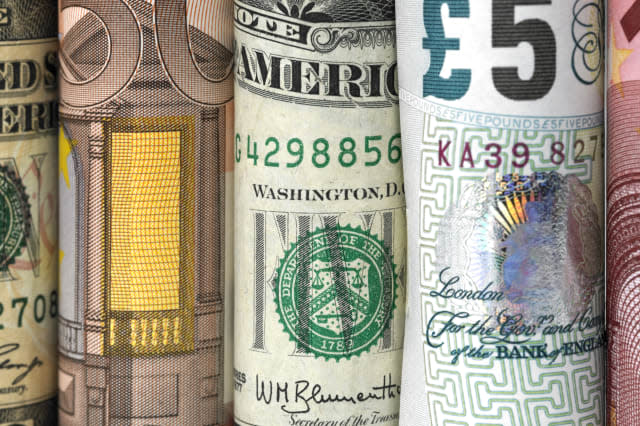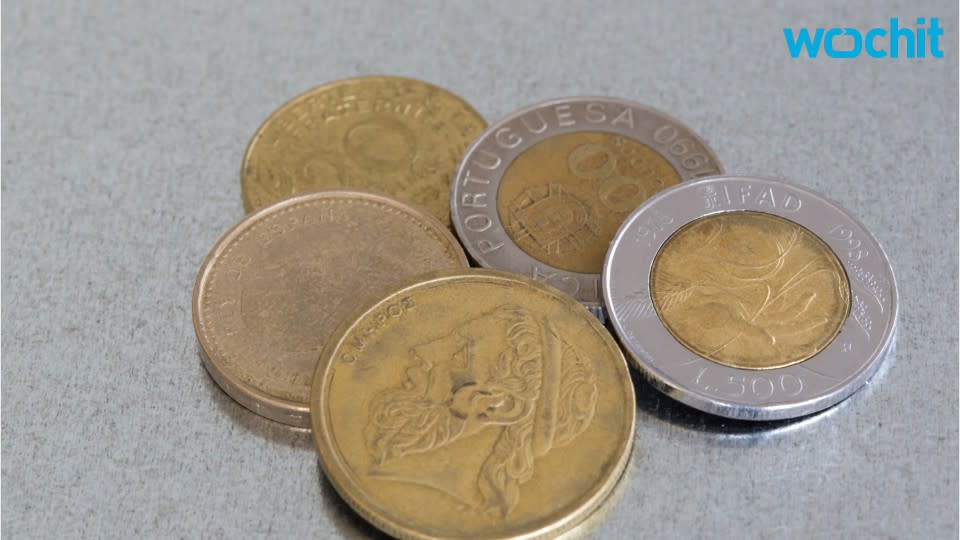Should you snap up your holiday money now?

The collapsing value of the pound has spooked many people into buying their holiday money now - before things get even worse. Those who are planning to travel this Easter - and even this summer - are so concerned about the future of the pound, that they are buying now just in case things get even worse. The question is whether you should follow their example.
The fall
The pound has been on a downwards trajectory since November last year, and has been even more volatile since David Cameron set a date for the referendum on whether Britain should leave the EU.
The markets hate uncertainty, so in the days following the announcement of the referendum date, the pound's value fell from 1.29 euros to the pound to as little as 1.27 euros - before recovering slightly. This looks particularly striking when you consider the fact that in November last year it was at 1.43 euros.
Meanwhile, last week sterling fell to its lowest level against the dollar since 2009. It's now $1.35 to the pound - compared to $1.51 a year ago.
A study by FXcompared has revealed that 55% of people are concerned that a Brexit vote would do even more damage to the pound - pushing it even lower. The experts agree, but are undecided about just how low it will go.
What should you do?
Brokers have reported a surge in the number of people requesting currency exchange in recent weeks, and the Post Office says it has exchanged 43% more euros in the past week than it did in the same week last year.
It's difficult to predict what will happen in the currency markets. However, the experts agree that there's no reason why the pound would recover significantly before the Brexit vote on 23 June. If it goes close to the wire, the uncertainty is only going to get worse, so the pound could fall even further.
If you are travelling at Easter, there are no guarantees, but on the balance of probabilities the pound is unlikely to stage a major recovery against the euro before your holiday - and may get worse. If you can afford it, you may want to get at least some of your holiday money sooner rather than later.
If you are looking ahead to the summer, and are travelling after the vote, the movement of the pound may well depend on the outcome. There's a good chance it will fall even further if Britain votes to leave. UBS is one of the most pessimistic organisations on this front - as it thinks a leave vote would take another 20% off the value of the pound against the euro.
However, there's a chance it will rally if we decide to stay. A recent report from Blackrock highlighted: "A Brexit could pressure the UK's budget and current account deficits, hurting the currency and potentially triggering credit downgrades. Conversely, we see depressed sterling bouncing back if the UK votes to stay."
If the country ends up voting to stay, and you are travelling to Europe shortly after the vote, you could end up kicking yourself if you bought when the currency exchange rate was depressed.
The dollar
The dollar is another matter entirely. The movement of the pound against the dollar has been a long-term gradual decline - which has intensified over the past two years. The fact that the Federal Reserve has raised interest rates in the US is a sign that it believes the economy is on the road to recovery. The fact that the Bank of England hasn't done something similar, is a sign we are lagging behind. As the US economy strengthens relative to the UK, it's only going to make the dollar stronger against the pound.
It's unlikely that the direction of the dollar versus the pound is going to reverse in the immediate future, so some travellers to the US might consider exchanging their money sooner rather than later.
Whenever you are travelling, the exchange specialists suggest you can reduce the risk of getting all your currency at the worst possible time, by staggering when you buy it. If you get half now, and half later, you can at least guarantee that you won't have bought it all at the lowest possible rate.
But what do you think? Will you be exchanging your currency sooner rather than later? Let us know in the comments.





